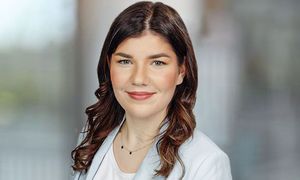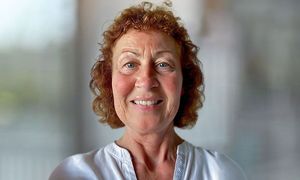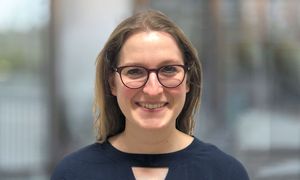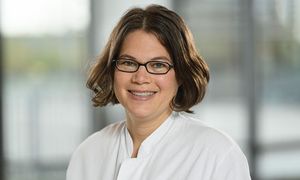Clinical Studies in the KFO 5001 ResolvePAIN
Observational studies
The declared goal of all research conducted by the clinical research unit (KFO) ResolvePAIN 5001 is to improve pain therapy. The knowledge of which molecular mechanisms, genetic dispositions, personality traits, or external factors influence the resolution of neuropathic pain in the selected diseases leads to the development of new and improved procedures or active treatments. Longitudinal observational studies of as many patients as possible are required, sometimes running over years. Therefore, we are continuously looking for appropriate patients to participate in our studies.
Study participation
If you meet the appropriate criteria for one of the respective studies, we will usually approach you as part of your daily clinical routine. However, if you are not yet undergoing medical treatment at the University Hospital but are still interested in participating in one of our clinical studies, please contact us. We will then clarify together whether the study is suitable for you.
Comprehensive phenotyping
Upon inclusion into one of the observational studies, all study participants undergo a so-called deep phenotyping. In this differentiated and comprehensive examination, with several clinical, electrophysiological, psychophysiological, imaging, psychological, and molecular tests. In the long-term, biomarkers will be identified that determine a certain course or the success of the therapy. The intention is to develop individually tailored therapies as personalized medicine.
Current clinical studies
Bortezomib-induced nerve pain
Bortezomib is a highly effective chemotherapeutic agent to treat multiple myeloma. However, some patients develop a polyneuropathy during treatment. It is characterized by burning pain in hands and feet and/or sensory disturbances. These side effects often force patients to stop taking the drug with the risk of recurrence of myeloma.
In longitudinal and cross-sectional studies, deep phenotyping data are collected. The development and resolution patterns of the neuropathic pain are analysed, taking its many features into account. In addition, we are conducting a clinical study that examines the course of pain in relation to the social environment. For this purpose, life situations are regularly surveyed via smartphone using modern communication technology.
Contact
Nadine Cebulla PhD Student
Phone: +49 931 201-23548
Mail: cebulla_n@ukw.de
Yoonhwa Jun M. Sc. PhD Student
Mail: jun_y@ukw.de
Xiang Zhou M.D.Clinician Scientist
Phone: +49 931 201-44955
Mail: zhou_x@ukw.de
PIs
- Univ.-Prof. Dr. med. Claudia Sommer, Consultant, Department of Neurology, University Hospital Würzburg
- Univ.-Prof. Dr. med. Martin Kortüm, Chair of Translational Myeloma Research, University Hospital, Würzburg
- Univ.-Prof. Dr. rer. nat. Grit Hein, Heisenberg W2 professorship in Translational Social Neuroscience, University Hospital, Würzburg
- Univ.-Prof. Dr. med. Mirko Pham, Head, Institute of Diagnostic and Interventional Neuroradiology
RESOLVE CPIP – groin pain
The Centre of Interdisciplinary Pain Medicine (ZiS) conducts several clinical studies. In RESOLVE CPIP, we want to find out firstly why about 14 percent of patients after inguinal hernia surgery develop persistent pain and secondly why this pain then resolves in some but not all of them. We are also interested in the overall course of any chronic postsurgical inguinal pain (CPIP). For this reason, the study design includes both the long-term observation of patients who have just undergone surgery and of patients who have already developed chronic pain after inguinal surgery. For this study, we are still looking for healthy volunteers over 40 years as well as patients with groin pain after surgery.
Contact
Gudrun Schell
Study Nurse KFO 5001
Phone: +49 931 201-30277
Mail: schell_g@ukw.de
Julian Herfurth, MD
Clinician Scientist
Phone: +49 931 201-34609
Mail: herfurth_j@ukw.de
Eva Herrmann
MD Student
Phone: +49 931 201-30231
Mail: herrmann_e@ukw.de
Anna Widder, MD
Clinician Scientist
Phone: +49 931 201-38613
Mail: widder_a@ukw.de
PIs
- Univ.-Prof. Dr. med. Nicolas Schlegel, Consultant, Department of General, Visceral and Paediatric Surgery, University Hospital Würzburg
- Prof. Dr. med. Heike Rittner, Head, ZiS, University Hospital Würzburg
- Univ.-Prof. Dr. med. Mirko Pham, Head, Institute of Diagnostic and Interventional Neuroradiology
RESOLVE CRPS
In the RESOLVE-CRPS clinical study on complex regional pain syndrome (CRPS) performed by the Centre of Interdisciplinary Pain Medicine (ZiS), we observe the course of CRPS over two years. From diagnosis to pain resolution, we want to decipher the etiology, document the clinical course, and analyse molecular changes. For this purpose, various additional examinations are carried out, such as quantitative sensory testing, MRI scan also of the brain and the dorsal root ganglion or nerve fibres in the skin.
In a subgroup of patients, we also determine the influence of the social environment on pain. For this purpose, the life situations are surveyed via smartphone. For this study, we are looking for patients with CRPS type I as well as CRPS type 2, if possible, at the onset of the disease.
Contact
Gudrun Schell
Study Nurse KFO 5001
Phone: +49 931 201-30277
Mail: schell_g@ukw.de
Juliane Becker, MD
Clinician Scientist
Phone: +49 931 201-30133
Mail: becker_j7@ukw.de
Yoonhwa Jun M. Sc.
PhD Student
Mail: jun_y@ukw.de
Dr. Ann-Kristin Reinhold
Clinician Scientist
Phone: +49 931 201-30133
Mail: reinhold_a@ukw.de
Dr. med. Magnus Schindehütte
Clinician Scientist
Phone: +49 931 201-34460
Mail: schindehue_m@ukw.de
PIs
- Univ.-Prof. Dr. med. Heike Rittner, Head, ZiS, University Hospital Würzburg
- Univ.-Prof. Dr. rer. nat. Grit Hein, Heisenberg W2 professorship in Translational Social Neuroscience, University Hospital, Würzburg
- Univ.-Prof. Dr. med. Mirko Pham, Head, Institute of Diagnostic and Interventional Neuroradiology
Polyneuropathies of unknown etiology
Some patients develop so-called polyneuropathies without an identifiable cause. Sometimes a previous brain inflammation is the trigger. In these cases, an autoantibody can be found more frequently, which is directed against endogenous nerve structures and influences pain transmission. We are therefore looking for study participants who have been diagnosed with Caspr2 autoantibodies. We use electrophysiological measurements, blood samples and imaging procedures to observe the course of the disease, during therapy or its natural course.
Contact and PI
PD Dr. med. Kathrin Doppler, Consultant, Department of Neurology, Würzburg University Hospital.
Neuropathic pain in neurofibromatosis
For this long-term study, we are looking for people who have been diagnosed with the hereditary disease neurofibromatosis. Depending on the clinical manifestation and type of the disease, we observe the course of neuropathic pain. For this purpose, examinations with functional imaging methods are also carried out at regular intervals and tissue and blood samples are taken.
Contact
Dr. med. Eva Rampeltshammer
Clinician Scientist
Phone: +49 931 201-24874
Mail: rampeltsha_e@ukw.de
Simon Weiner, MD
Clinician Scientist
Phone: +49 931 201-34350
Mail: weiner_s@ukw.de
PIs
- Univ.-Prof. Dr. med. Cordula Matthies, Deputy Head, Department of Neurosurgery, University Hospital Würzburg
- Univ.-Prof. Dr. med. Nurcan Üçeyler MHBA, Consultant, Department of Neurology, University Hospital Würzburg
- Univ.-Prof. Dr. med. Mirko Pham, Head, Institute of Diagnostic and Interventional Neuroradiology









